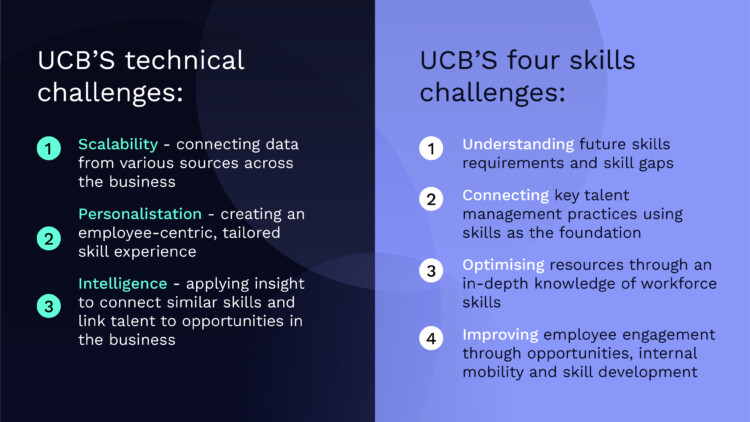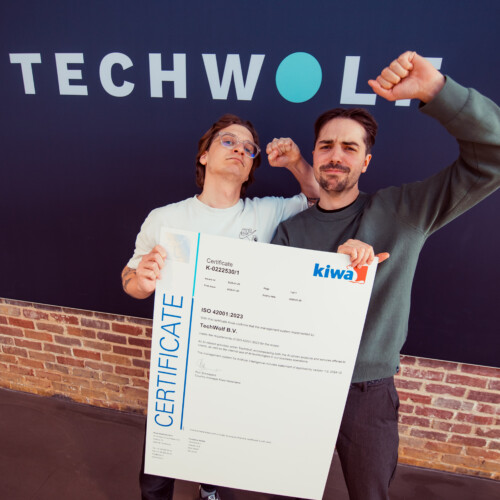Pioneering a Skill-Based Future: UCB's story
Insights from TechWolf's COO Mikael Wornoo and UCB's Head of IT Talent & Company Reputation, Christophe Cabrerato.
TechWolf’s COO Mikael Wornoo recently hosted a conversation with UCB’s Head of IT Talent & Company Reputation, Christophe Cabrerato, exploring how leading organisations are putting a skill-based approach in action today with three practical tips to help you get started. Christophe shared his experience of applying a skill-based approach to support the transition from a pharma to a bio-pharma company, plus his experience of working with TechWolf. Here are some of the main takeaways from the session:

From this starting point, UCB were able to identify three use cases to see how a skill-based approach could improve outcomes:
Strategic Capability Planning - identifying and tracking skills and moving from a top-down, internal and manual process to a top-down/bottom-up approach. This also included using market benchmark data with low manual input to create a data-backed skill gap analysis.
- Job Catalogue - the creation of a solid skill architecture and governance structure that was regularly updated based on external market trends.
- Internal Mobility - gaining a full overview of potentially suitable internal candidates for open positions and identifying what reskilling and investment was required.
Working with an initial group of around 500 employees, UCB compiled a comprehensive job catalogue, personal job descriptions, and learning and job history. TechWolf leveraged this data to:
Build a skill taxonomy
- Map jobs to skills
- Map people to skills
While UCB’s journey in skill development is ongoing, they are already harnessing skill data to drive value and significant transformation across the organisation. In just a few months, they have produced valuable skill insights to bolster strategic capability planning.
Mikael concluded the conversation with actionable insights for embarking on a skill-based journey:
Get going, with a goal in mind
- Start with a trial project that is big enough to be meaningful but focused enough to be manageable
- Be specific with a clear business problem to solve
- Set ambitious but realistic timelines- Stop obsessing over who should own skills (for now)
- A skills project can start anywhere in the business
- There is no clear “owner” for skills
- Be intentional about governance across the business - Focus on the value from skill data first. Integration will follow
- Apply skill data to the business problem in practice
- Then, set up integrations and processes to maintain it
For more information on how to get started on your skills journey, please click here to read our latest guide.




